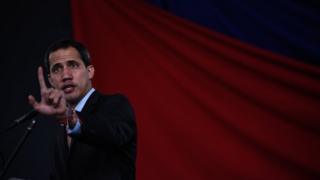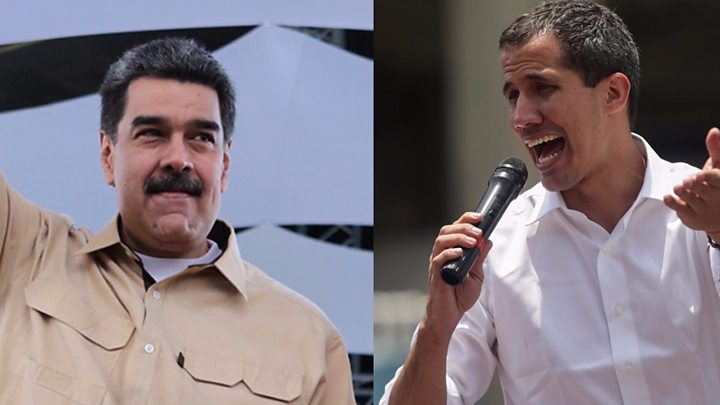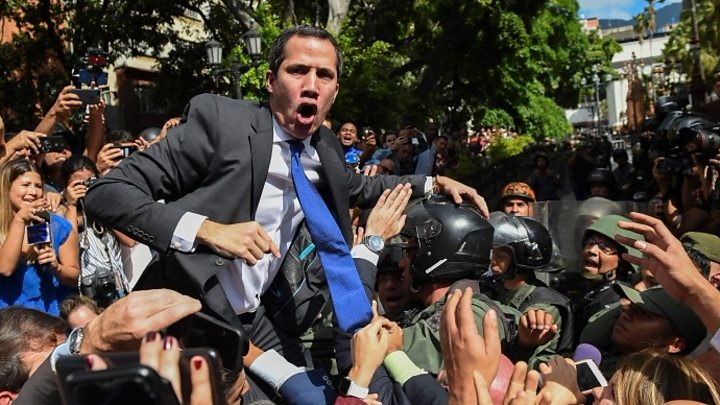This website uses cookies so that we can provide you with the best user experience possible. Cookie information is stored in your browser and performs functions such as recognising you when you return to our website and helping our team to understand which sections of the website you find most interesting and useful.
 Image copyright Getty Images
Image copyright Getty ImagesVenezuela's opposition leader Juan Guaidó has travelled to Colombia for a counter-terrorism meeting, the second time he defies a travel ban imposed by the pro-government Supreme Court.
He is expected to meet the US secretary of state in Bogotá on Monday. The US and more than 50 countries recognise Mr Guaidó as Venezuela's rightful leader.
President Nicolás Maduro accuses the US of orchestrating a coup to oust him.
But in an interview he seemed to open the door for direct talks with the US.
Speaking to the Washington Post, Mr Maduro said: "If there's respect between governments, no matter how big the US is, and if there's a dialogue, an exchange of truthful information, then be sure we can create a new type of relationship."
Mr Maduro and Mr Guaidó have been at loggerheads for more than a year, after Mr Guaidó - head of the National Assembly - declared himself interim president, claiming Mr Maduro's re-election in 2018 was fraudulent.
Despite international pressure and US sanctions on the crucial oil sector, Mr Maduro has managed to stay in power supported by Russia, Cuba and a handful of other countries as well as the powerful Venezuelan military.

Media playback is unsupported on your device
On Twitter, Mr Guaidó confirmed he had arrived in Colombia, where he would hold talks with President Iván Duque. However he did not publicly confirm a meeting with US Secretary of State Mike Pompeo, which has been widely reported by US media.
The meeting will be attended by foreign ministers of several Latin American nations. Most of them back Mr Guaidó.
It was not clear how Mr Guaidó travelled. He has not left Venezuela since last February, when he also travelled to Colombia to organise a US-backed effort to transport aid cargos back into the country. The plan was blocked by troops loyal to President Maduro.
Earlier this month, the National Guard prevented Mr Guaidó from entering the National Assembly and standing for re-election as Speaker. He then moved the session to another location where about 100 lawmakers re-elected him for the role.

Media playback is unsupported on your device
In Mr Maduro's Washington Post interview, he said his opponents underestimated him and that he "didn't care" about the US sanctions. But he suggested that US oil companies could benefit immensely from Venezuela's oil if President Donald Trump were to lift sanctions.
The power struggle in Venezuela has worsened the country's economic crisis, with a quarter of its 30 million population in need of aid, according to the UN. More than four million Venezuelans have left the country over the past few years.



 Africana55 Radio
Africana55 Radio 
